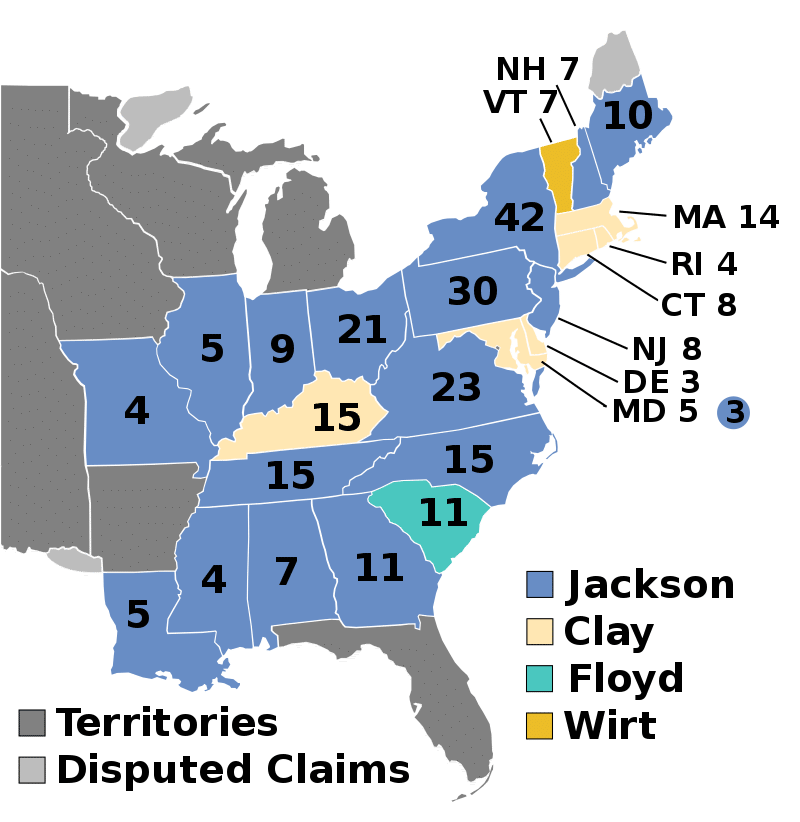The Presidential Election of 1832 would be the first election in which the political parties would hold a convention and nominate their candidates. It was also the first time that a third party emerged to run for President of the United States.

Jackson's popularity was still strong in the general public, but he had started to lose some support for his Bank War. He believed the Bank of the United States was unconstitutional and did not renew its charter. It caused much division in Congress.
The Candidates were as follows:
- Democratic: Andrew Jackson and Vice President Martin Van Buren
- National Republican: Henry Clay and Vice President John Sergeant
- Anti-Masonic: William Wirt and Vice President Amos Ellmaker
- Nullifier: John Floyd and Vice President Henry Lee
Presidential Election of 1832: Platforms
There were three major candidates in the Presidential Election of 1832. They came from four parties, and their platforms are as follows:
Democratic: Andrew Jackson had made himself a fighter for the people and maintained his popularity despite many questionable decisions as President. He campaigned on these things and asked the American people to trust him and his decision regarding the banks as he was defending them.
National Republican: The National Republicans nominated Henry Clay and argued in favor of the charter for the Bank of the United States. Clay wanted to try and divide Jackson's followers, especially in Pennsylvania, which was where the Bank was located.
Anti-Masonic: They had hopes of combining with the National Republicans and bringing down Jackson. However, their candidate, William Wirt, was reluctant and regretted running for President.
Nullifier Party: A small party begun by John C. Calhoun in favor of states' rights and held a pro-slavery position. Their candidate was John Floyd, who ran under the issue that states have the right to nullify a Federal Government decision as state rights are superior to Federal Government.
Presidential Election of 1832: Outcome
Despite the Bank War and his fights with Congress and the Supreme Court, Andrew Jackson was re-elected as President. The people trusted him, and now it seemed he was mandated to continue his assault on the Bank of the United States.
The National Republicans would begin to dissolve, and a new political party would emerge that would shape the next couple of decades, The Whigs.
The Anti-Masonic and Nullifier parties did not matter as they did not pick up electoral votes to be significant. The nullifiers would join the Democrats after Andrew Jackson left office.
